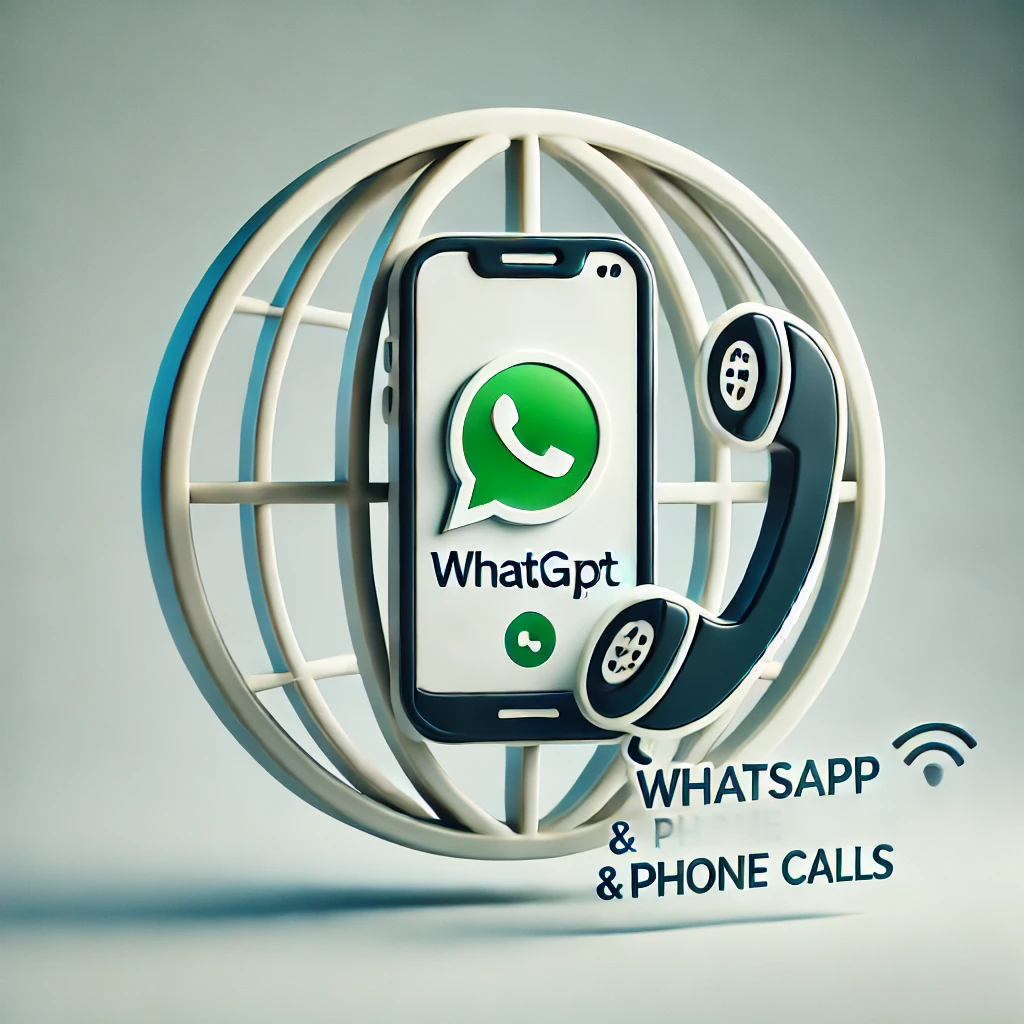OpenAI has introduced new ways to interact with its AI chatbot, ChatGPT, offering a free phone service in the United States and making the bot accessible globally through WhatsApp. These updates are part of OpenAI’s “12 Days of Christmas” initiative, aimed at expanding access to AI technology for a broader audience, especially those less familiar with its online platform.
Phone-Based Access for US Users
US users can now connect with ChatGPT via a dedicated phone line by dialing 1-800-CHATGPT. This service allows voice-based conversations with the AI, providing up to 15 minutes of free call time per month. Built using OpenAI’s Realtime API, the phone service offers a straightforward, hands-free way to experience ChatGPT without needing to type or navigate the internet.
WhatsApp Integration for Global Users
Outside the US, users can engage with ChatGPT through WhatsApp. By messaging the AI on 1-800-242-8478, people around the world can access text-based interactions. This feature is powered by OpenAI’s GPT-4o mini model via the WhatsApp API, designed to make AI interaction simple and approachable for new users.
Kevin Weil, OpenAI’s Chief Product Officer, described the initiative as a bridge for AI newcomers. “We aim to provide an easy and accessible experience for individuals who may be exploring AI technology for the first time,” Weil shared during a livestream.
A Streamlined and Experimental Experience
OpenAI has clarified that these features offer a simplified version of ChatGPT, different from its full web-based platform. For users seeking more advanced features, higher usage limits, or customization options, the traditional platform remains the go-to choice. The phone and WhatsApp services, on the other hand, cater to users who are less tech-savvy or are just beginning their journey with AI tools.
Prioritizing Privacy and Transparency
In response to privacy concerns, OpenAI has assured users that data collected from phone interactions will not be used to train its language models. Taya Christianson, OpenAI’s spokesperson, emphasized the company’s commitment to ethical AI practices and user confidentiality.
Inspired by Past Innovations
This initiative is reminiscent of Google’s 2007 GOOG-411 service, which allowed users to search directories via voice commands. However, unlike Google’s focus on collecting voice data to improve speech recognition, OpenAI’s approach centers on making AI technology more accessible and user-friendly for everyday interactions.
A Step Towards Inclusivity and Future Plans
These new features are part of OpenAI’s broader mission to make AI more inclusive while balancing the operational costs of running advanced models. Developed during a focused “hack week,” the services highlight OpenAI’s ability to innovate quickly and effectively.
The company has indicated that these experimental services may evolve based on user feedback. While the phone-based service is currently exclusive to US users, the WhatsApp integration is globally available, demonstrating OpenAI’s intent to cater to a diverse audience.
Additional Updates
Alongside the new accessibility features, OpenAI has announced other updates, including an AI text-to-video generator named Sora and a premium subscription plan. The premium tier, priced at $200 per month, provides access to OpenAI’s most advanced models, catering to users with more demanding AI needs.
A New Era for AI Accessibility
By introducing ChatGPT through phone calls and WhatsApp, OpenAI is removing barriers to AI adoption and enabling a wider range of users to experience its benefits. These initiatives mark a significant step in making AI technology an integral part of daily life, shaping the future of human-AI interactions.
- What is DeepSeek and the power of AI models
- AgniKul Cosmos stages to suborbital test flight
- Spare8 Secures Fresh Funding to Transform Gold Investments in India
- Google Commits Over $1 Billion to Anthropic, Strengthening Its Push in the AI Space
- Tata Motors Unveils Over 50 Advanced Vehicles at Bharat Mobility Global Expo 2025



